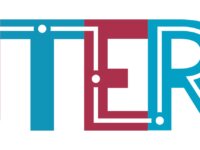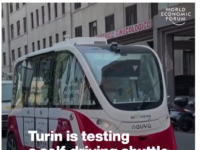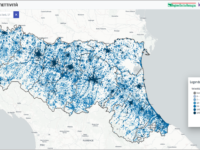Complex government documents may confuse citizens, making it difficult to access services such as pensions or benefits. This work engages GenAI to rewrite these texts in plain language, maintaining legal accuracy while increasing clarity. Focused on the Service Pages of Italy's National Institute of Social Security portal, which serves 45 million users, AI surpassed human experts in user preference, enabling the Institute to communicate inclusively and at scale.
Case Study Library
Where innovations are collected and shared to disseminate and replicate good ideas

Innovations:
0
This website, as well as any data and map included herein, are without prejudice to the status of or sovereignty over any territory, to the delimitation of international frontiers and boundaries and to the name of any territory, city or area.
To tackle air pollution and climate-related challenges, Milan has devised and executed a groundbreaking initiative to engage citizens in sustainability planning – the Permanent Citizens' Assembly on Climate. By fostering inclusive deliberations, the Assembly puts forth tangible recommendations for the city's long term sustainable development agenda. Its innovative model guides an equitable transition that positively impacts all residents ensuring durable civic participation in policymaking.
Santo Stefano di Sessanio is a rural village affected by long-standing depopulation and marginalisation phenomena that need to be effectively tackled. Seizing the opportunity of funds for socio-economic revitalisation, a participatory process was promoted to identify a framework of proposals responding to real local needs and aimed at improving the attractiveness and liveability of the village, while strengthening the local community's sense of trust, spirit of cooperation and responsibility.
Case Study
Creating public value: New Personnel Requirements Plan and innovative recruitment methods.

The innovation strategically aligns the Chamber of Commerce of Cosenza's (Camera di Commercio di Cosenza) personnel approach with its evolving goals and societal needs. It introduces a fully innovative, multidimensional recruitment process, impacting professional profiles, job announcements, selection processes, and communication strategies. This benefits the Chamber by enhancing recruitment efficiency and attracting qualified candidates, seemingly distant from institution but capable of…
The project was born from the need to redesign the Ministry of Education's (MI) decision-making processes. The ITeR application is an organizational and management tool built to suit this purpose. The beneficiaries of the innovation are the MI actors involved in the process, but also the citizens who benefit from the measures being issued more quickly. ITeR is innovative because it enables the cooperation of all actors, keeps track of all documents and greatly simplifies the decision-making…
“Sperimentazione Italia” is a horizontal sandbox that allows companies, universities, research bodies, university startups and spin-offs from any sector (except excluded areas of application) to test pilot projects in the field of digitalisation and technological innovation, by derogating regulatory constraints. The main objective is to conduct live experiments in a controlled environment under the regulator’s supervision and collect data to promote future-proof regulations.
Emilia-Romagna’s Digital Agenda led a significant innovation process for public administration decision-making. The process resulted in a co-design phase with local administrations to structure and publish online the first geo-referenced regional Observatory on ultra-broadband connectivity in Italy. Multi-stakeholder participation made it possible to identify and highlight the various strengths and weaknesses of the tool, enabling its optimisation.
Guided by a vision with people at its heart, WFP is harnessing the benefits of blockchain technology in its operations. Since 2017, WFP and its partners have been applying blockchain technology through the “Building Blocks” (BB) project to help achieve its mission while working with the wider United Nations/INGO community to push for greater efficiency across humanitarian and development operations.
Case Study
Italian Gender Equality Certification System – Sistema per la certificazione della parità di…
Within the implementation of the National Recovery and Resilience Plan (NRRP). the Italian government has introduced a national “Gender Equality Certification System” that aims at guiding and incentivizing companies to adopt policies aiming at reducing the gender gap in all the most critical areas, such as opportunities for growth in the company, equal pay for equal work and maternity protection, and also supporting a paradigm shift developing from the business world.
Officina is a lab for innovation in the public sector whose main objective is to catalyse the energy of young talents by offering them a transformative training programme. Officina was developed to address a triple urgency: future decision makers not perceiving the public sector as an attractive workplace; the public sector having high average age workforce and lack of innovative approaches; society at large needing a more modern and appealing public sector in this key historical moment.



